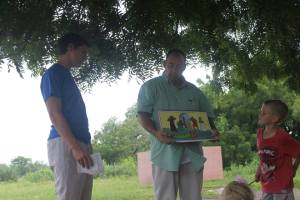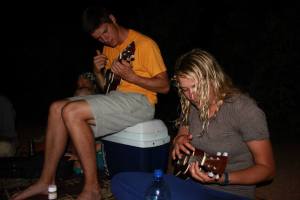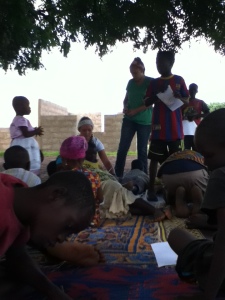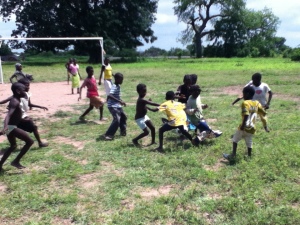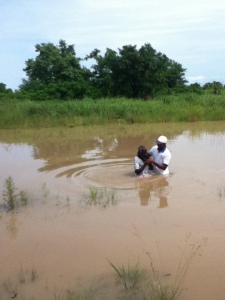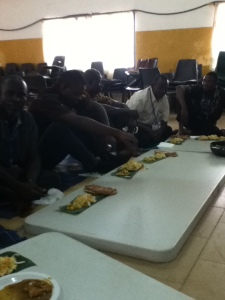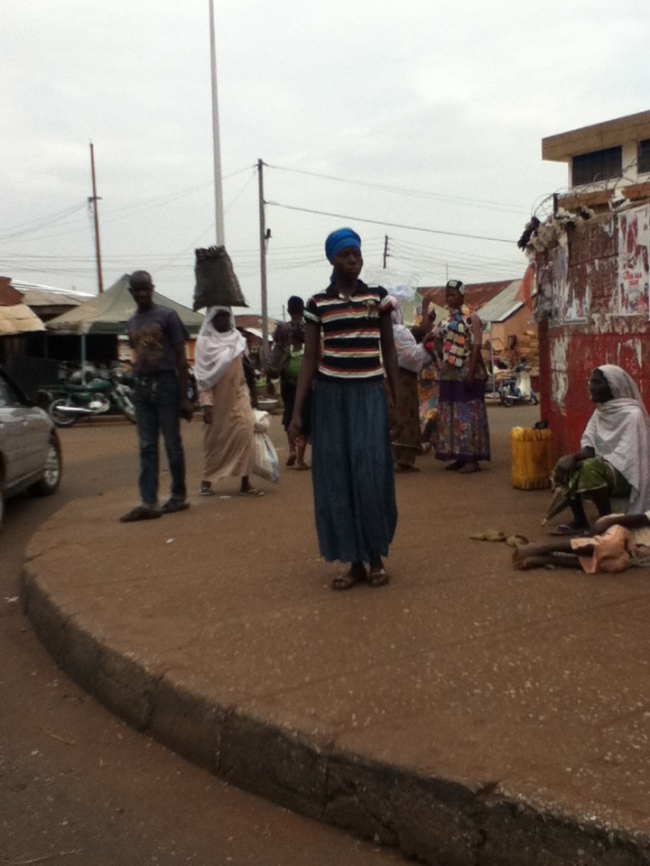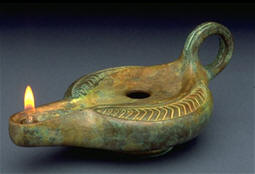Ghana stuff (Part 2)

This summer was awesome. But it wasn’t extraordinary or spectacular. Nothing they’re going to make a movie out of or write books on. It was very commonplace by the world’s standards. We had a packed schedule and worked a lot. We built up and grew two community gardens in two nearby villages. We nursed, planted and tended lots of different foods in the permaculture center. We got to spend time with inspiring faithful people like the Graham’s and the Ruff’s. We learned some helpful (and humorous) Gonja words and phrases. And we got to tell a lot of people about Jesus. But there was never a point where I saw my gifts perfectly aligned for the task. Ever. The whole “I’m here for a reason” sensation takes a big hit when you realize that you’re absolutely replaceable.
When we first arrived at the Ruff’s house/permaculture center in Buipe after spending a few days in nearby Tamale, our team had some free time. This ended up working really well for us because Ashlee was in a wedding the day after Jesse, Lindsey, and I flew out. So we had a few days to wait for her to arrive with Stephen (the Pathways coordinator), who was to stay for a week. After they arrived, we had a few more days on top of that to adjust to the culture, adjust to the time, get to know our teammates a little better, and do some small chores around the house. The Ruff’s house is a house of halves. On one side is Terry and Amy’s bedroom, with the kitchen just outside. On the other side are two guest rooms, where we stayed. In the middle is a cozy living area complete with a chief seat and a bookshelf. We flooded the bedroom, almost blew up the kitchen, and hunted geckos in the girls’ bedroom. This middle area was pretty much the safest place to be. Naturally, I took advantage of this and did a little reading during our down time. The first book I picked up had something to do with missionary burnout and depression (a real pick-me-up). One part jumped out at me. The author said to envision your worst case scenario and then, recognize the sufficiency of God’s grace within it. During our “team time” that night, the discussion got around to that topic, so I brought up what I had read. One thing led to another, and we forced each other to share the worst possible thing we could imagine happening during our time together in Ghana (great way to kick off the trip, right?). I remember mine, because, in a way it’s still my worst-case scenario or more precisely, my worst fear. My worst fear is that tomorrow I will wake up and my passion will be gone. What if I get sidetracked and then swept away into the flow? What if that flame, left unattended, just flickers out? What if I just didn’t care anymore, about anything? In my journal that night, I wrote, “Emotion kind of indicates our sense of purpose. If you’re emotional, it means you have something worth living for.” Passion fuels purpose.
Maybe I should expect someone to knock on my door asking for my man card here soon. Feelings and journaling are numbers one and two on my “not-to-do list”. But here it is. Take a picture, save it in the memory archives, print it out and hang it on your fridge – because it probably won’t happen again. I had this idea that this emotional, passionate connection to what I do would continually affirm my purpose. If I was happy or loved what I did, then clearly I was in the right place. That’s how God communicates to us right? Wrong. I bought into the lie (prevalent in churches) that if I was happy, I was living in the sweet spot of God’s will. I thought that passion gave me purpose.
But passion is not enough, because passion will eventually fail you. Just take a look at Peter, arguably the most passionate person we meet in the Bible. Just hours after boldly declaring that he would lay down his life for Jesus (John 13:37), Peter vehemently denies to the most insignificant people in his day (quite literally a junior high servant girl) that he is even associated with the one they call Jesus. And yet Jesus still died for Peter, just like he died for us. I think sometimes we get this idea that Jesus died for a bunch of loyal followers who sinned a few times, but all in all were pretty good people. Jesus didn’t die for these people. He died for those who would just as soon betray him as they would follow him.
Passion is not enough, because passion will eventually fail you.
You see, I was wrong. Even if I was the most insanely passionate, enthusiastic missionary this world has ever seen, I would still be human. Even if I lived in a monastery where I did nothing but study, worship, and serve, I would still be depraved and sinful and a mess. In the end, I would still be capable, like all the disciples, of betraying my Lord. Nothing in this world can keep me safe from myself. No emotion can supplement a life driven by Jesus.
Passion doesn’t fuel my purpose. Christ does. If your purpose comes from anything other than Jesus and his irrevocable call on your life (Romans 11:29), you are standing on a shaky foundation that will inevitably crumble. You can’t fail depending on Jesus. Unlike us, Jesus will remain faithful to the end. When your purpose is found in Christ, you see every moment as it is – a unique opportunity given to you by God to glorify His name (Ephesians 1:11-12).
When we see Christ as he is and trust him with our lives, our life’s purpose becomes consumed by seeking to glorify God’s name among all the peoples of the world. After Peter betrayed Jesus, he wasn’t disowned. In fact, Jesus gave him the responsibility of building the church (What?!). Even in the midst of our betrayal, God entrusts us with enormous tasks and we are called to faithfully obey. I guarantee you that Peter wasn’t feeling like much of a champ at that moment. In fact, John 21:17 said that Peter was hurt because Jesus kept drilling Peter on whether or not Peter loved him. Peter wasn’t on any sort of spiritual high right now. In fact, it was probably his spiritual low. The point is, even though Peter wasn’t feeling great, Jesus still called him. God doesn’t wait for us to clean ourselves up first so that we can feel good and get some momentum rolling on our self-righteousness. He calls us at our lowest. Maybe it’s because we’ve come to the end of ourselves. Once we see the reality of our betrayal, it destroys every inkling of pride within us. It forces us to realize our need for Jesus. Then we obey. Faithfully. Nowhere is emotion or passion necessary for obedience. Just love for Jesus. And it’s at that point, when we come to the realization of our betrayal just like Peter’s, that Jesus looks at us and says “Follow me.”
Ghana stuff (Part 1)

I’m going to be honest. I don’t feel called to Ghana. Maybe I am and I just don’t know it yet. Maybe not. Either way, I’m not going to romanticize this trip out of some sense of self-righteousness so that I can join the long line of good, caring people that earned their do-gooder title all because they went to Africa one time.
What did I do there? I lived life. That’s it. Maybe that’s the secret to missionary life that no one has seemed to figure out yet – it’s just life. But that statement in itself carries with it a baggage of assumptions. Maybe I should clarify. I’m not talking about being physically alive and just taking up oxygen. This is life surrendered to the purposes of God for His glory. It’s life guided by the infinite wisdom of the Holy Spirit and modeled carefully after the precious life of the Son. Now I didn’t do that exactly. I’m imperfect. I selfishly followed my own desires at times, ignored the Holy Spirit’s proddings, and settled for a life so cheap that I couldn’t trade it in at the nearest dealer for a used…well, anything . But (and this is nothing but God’s sheer grace) there were times that I tasted this life. And it’s kind of awesome.
It’s not easy. And it won’t come naturally. Those are two of the biggest flaws in our thinking when we think about personal ministry. And, yes, ministry is to be personal. It’s not just a job, or a pastor/missionary/seminarian/Bible college thing. There are no qualifications. Just a command – go. And that command was directed to you, me, the pastor, the student, the businessperson, everyone. But it’s not easy. And it won’t come naturally. Why? Well, for starters the Bible says so. (Luke 9:23, Ephesians 2:1) It makes clear that following Jesus is hard, and it will come with rough patches (and maybe more than just that). It probably means that you’re going to have to sacrifice something that you’re still clinging to. It might just mean that you have to put up with a bunch of crap from people who don’t like your views. Believing the Bible has never been popular, and probably never will be. (288 people were burned at the stake in England for believing the Bible, William Tyndale was strangled then burned for making the Bible available in English, nearly all the apostles were martyred for their faith, etc.) So it’s going to be hard. Maybe, just maybe, we’ll have the privilege of being burned for it.
One of my pet peeves is the line, “My ___ is my ministry.” I’ve heard it dozens of times. Two problems I have with this: 1. It’s not your ministry, it’s God’s, and 2. It’s usually a person trying to justify why they don’t actually engage in ministry (why else would they say it?). These people tend to think that simply being a stellar, Christian example in the workplace (or whatever environment they are in) will inspire their peers to convert. Therefore, they reason, it is a ministry in itself. In a way, they are right. But are you really going to settle for that when God has made you for so much more? Can you honestly tell me that you are fulfilling God’s purpose for your life by just “being there”? Some of you won’t be convinced by me. “Pastors do the preaching, and my job is just to get people to my pastor.” False. Weren’t we all declared priests? (1 Peter 2:5) Then why is our number one evangelism technique to invite someone to church? Is that bad? No. But it’s a neglect of the glorious responsibility that Christ has entrusted us with! And that isn’t bad…it’s downright tragic. We get to point them straight to Jesus! Because we have access to Jesus! (1 Timothy 2:5) And when we have access to Jesus why would we remain content with simply labeling ourselves as “Christian” and then putting a check in the “evangelism/discipleship” box? Do you care that the woman in the cubicle across from you is on a road headed straight to hell? If not, I’d be forced to question if you have even been touched by God’s grace at all. Because His grace is captivating, inspirational, life-giving, and changing – the sort of things that would lead us to obedience.
Maybe, just maybe, we’ll have the privilege of being burned for it.
What does this look like in practice, this personal ministry thing? Well, first of all, it’s not called personal ministry. Actually I have no clue what it’s called, but I’m going to start calling it discipleship. I got first-row seats to some of the best discipleship I’ve ever seen this summer in Ghana. Many people in northern Ghana are illiterate, contributing to a very oral culture. By oral, I mean that everything deemed important (i.e. things we would normally read about) is consumed by listening to stories. That oral culture, in turn, leads to a very relational culture. The time that we would spend reading, learning, and consuming knowledge (including things like internet, tv, and music) is replaced by time spent with each other. Let me tell you a story about discipleship in Ghana. A week or two before we arrived, a witch doctor named Alanpare walked into the church that Terry and Amy attend and said that he wanted to turn from his lifestyle and follow Christ. Terry went out and met with him on a weekly basis, telling him the gospel message, from creation to Christ, using a tool called…Creation to Christ (it’s available in the app store). It consists of 20 pictures that encapsulate the gospel in story format. Alanpare consumed the story eagerly. After all, these words of life were feeding a soul that had been starving for the last 70+ years. That week, Alanpare told his wife this amazing story of redemption. The next week Terry met with both Alanpare and his wife. The week after that it was Alanpare, his wife, and his friend, Paul. By the time we left, there were 7 people gathered each Friday at Alanpare’s farm because he, or someone that he told, had told the story to a friend. That’s discipleship. And when done correctly, it results in a little thing we like to call church-planting. I tell you this story for a few reasons. First, so that you will join me in praising God for the spread of the gospel in an unreached people group (http://joshuaproject.net/). Second, to give you a picture of what discipleship looks like and how I believe the Bible tells us to do it (Matthew 28:19-20). But thirdly I wanted to point out that Alanpare is by no means considered a mature believer. He was just beginning the process of being discipled. Yet, he was still going out and making disciples. My point is that no degree or qualifications are required to do what Jesus told us to do – make disciples (again…Matthew 28). Not only is discipleship not limited to pastors and paid ministers, but it’s not limited to mature believers either. If you want to follow Jesus, you will make disciples, whether you started following him this afternoon or 50 years ago. What would have happened if Jesus’ original 12 disciples didn’t make disciples? And if we are Jesus’ disciples today, what will happen if we don’t make disciples?
So what are you actually doing anyway?
So what are you actually doing anyway? I’m glad you asked. Last week was the Kairos course, which took place in Tamale, a city an hour away from us. Amy was the facilitator and did much of the teaching, so we stayed there for the week, learning about God and his heart for missions 8 hours a day. It was exhausting, but definitely worthwhile. Though it can’t possibly fit in a nutshell, here it is: From the beginning, God has been passionate about his glory – about the nations worshipping Him (Revelation 5:9-10). Not because He is some conceited jerk who just wants everyone to tell Him how great He is, but because He is everything good, perfect, and holy. To not want us to love and praise Him, would be to not want us to love and praise anything that is good. Let’s put it this way: God is love. For Him to not want us to love love, would be unloving. This is where missions comes in – spreading the gospel so that others will recognize and worship the one, true God. The Bible is built on mission. From Genesis 12, when God called Abraham, to us today, He has demonstrated a heart for missions, and He has chosen to use us for this task – not based on our resumés, but based on His grace. When God called Abraham, He said two things. 1. That Abraham would be blessed, and 2. That Abraham was to be a blessing to others. Too often we want the perks of #1, without the responsibilities of #2. We don’t just inherit Abraham’s blessings, we inherit his call.
Today, there are a little over 6,000 unreached people groups (UPGs) – clusters of similar people who haven’t heard of Jesus. 20 of these unreached people groups are in Ghana. We come across 3 on a day-to-day basis: the Gonja tribe, the Mamprusi tribe, and the Dagomba tribe. One of the most humbling moments at Kairos was our prayer time. We learned about various UPGs from a booklet and then prayed for them. On one of the last days, it was my turn to read, and I mechanically read some prayer points and interesting facts about today’s people groups. When I finished and started to pray, Amy stopped me, and had 3 Ghanaian men come to the middle of our circle for us to lay hands on. Little did I know, these guys who had been taking the course with us were from the Gonja and Mamprusi tribes. This was it, right here. These were the leaders who would be on the frontlines to win their nation to Christ. The several times I had prayed for boldness for Christians in UPGs, these were the people I was praying for. It gave my prayers a whole new meaning. It’s like they came to life. It’s as if I spent my whole life reading up on the Cincinnati Reds, following their stats, and listening to every game on the radio. This is what I did with UPGs (http://joshuaproject.net/global_list). But seeing these Christians in such a dark context was like going to a Reds game for the first time. They came to life, they were real. The point is, not seeing the people we are praying for doesn’t make them any less real or our prayers less meaningful, just like not going to a Reds game makes them any less of a baseball team. I’m not saying that it was my prayers made these men into bold, Christian leaders. But I can’t say that they didn’t. The fact is, I don’t know. But I think that one day in heaven, we will not only see the fruit of our labor, but the fruit of our prayers as well.
The gospel is exciting, it is life-saving, it is good news. We can’t claim lack of resources as a legitimate reason that these 6,000 groups of people are still unreached. These people know about the World Cup, and they know about flavors of Fanta that we have tragically never experienced (Fruit Cocktail is my favorite…Blackcurrant is a close second). But they don’t know about Jesus. So why has Coca-Cola done a better job of reaching people than the Church? Where is a better place to look than our wallets? Where is our treasure? Is it in reaching the lost? Is it in proclaiming good across the world and renouncing evil? Is it in healing and restoration? Here are some numbers for you: Less than 2% of Christians’ income goes to the church. Of that 2%, how much goes towards missions? Less than 2%. And how many missionaries are going to unreached people groups? At most, 20%. When it’s all said and done, less than .1% of our money is going to reach unreached people groups. So is it a lack of resources, or apathy? I’m not placing blame on any one person or group. It’s all of us. And I’m not making this a money issue. It’s a heart issue. What do we value? Everyone who claims to be in the body of Christ has been called by God for some purpose. And I can guarantee you that that purpose involves reaching out in some way. The question of distinction is just in what way? There is no way that someone can look at the spiritual state of the world in an objective way and say, “Yeah, I think the Church is doing just what it’s supposed to.” How can we change that? Step one is easy: Pray. Don’t just pray for the work, recognize that prayer is the work. If there is anyone out there that can help us with this immense task ahead of us, it is God Himself. We have a direct line to our Creator in the midst of this great spiritual war. And if we pray, won’t God answer? Jesus said in Luke 18:7-8, “And will not God bring about justice for his chosen ones, who cry out to him day and night? Will he keep putting them off? I tell you, he will see that they get justice, and quickly.” Pray fervently and pray continually. God desires us to see lost souls in the same way he does. Step one is easy. Step two is going to be different for all of us. So that question I want to ask is, “So what are you actually doing anyway?”
PRAYER REQUESTS: open hearts among villagers, patience in day-to-day living and language learning, unreached people groups (specifically the Gonja, Dagomba, and Mamprusi)
PRAISE GOD FOR: local leaders being trained in discipleship and church planting, effect of Kairos in motivating many local leaders to outreach, salvation of a former witch doctor (more on that next post…)
UP NEXT: Starting and sustaining a garden in two villages, building connections with kids in the villages, working in the permaculture center, beginning to learn the Gonja language
Terrifying Grace
A row or so behind the right wing of the plane, we were the passengers most protected from terrorists, but perhaps the passengers most vulnerable to the God who saw it appropriate to allow this beast to touch down on the runway safely, rather than plunging us straight into the depths of hell. But instead of hell, we were tossed into a place where only Satan himself would feel cool. Another act of grace. We had done everything we could to protect ourselves – I am just coming off of Yellow fever, Typhoid, and Meningococceal vaccinations. I take a malaria pill every day. We drink bottled water. But we can’t protect ourselves from a God who could very easily, and very justly pluck us from our cozy, air conditioned homes and place us in the middle of a war zone. And that’s kinda what He did. How did I wind up on this flight? Grace. Sure, maybe I chose to apply, but I believe that God led me to that. Just like He led me to everything else. I can’t take credit for getting accepted by Team Expansion. I can’t take credit for being introduced to Team Expansion by Andrew. I can’t take credit for being introduced to Andrew at church. I can’t take credit for being introduced to church by my family. In the same way, I can’t take credit for being introduced to Christ by God’s grace. The only way I end up where I am today is grace, and grace is the only hope I have of continuing.
We stepped out of baggage claim into a room full of screaming Ghanaians. This is where our plan ended. We had done our part – we flew to Accra, Ghana. The rest of the journey to Buipe was to be guided by our missionaries, Terry and Amy Ruff. Too tired to panic, we just stood there – right in the middle. Instant minority. Out of the chaos walked a smiling, non-Ghanaian woman, who we assumed was Amy. She was very welcoming, so we got in the truck with her, hoping that she was, in fact, Amy. (She was.) Fast forward to the next morning, and we meet Terry at the Tamale airport. After staying in Tamale for a few days, we finally made it to Buipe, the nearby village where we would be staying and working. Terry and Amy, both in their 60s, have only been in Ghana for 5 years. From the start, their love for the people of Ghana and their desire for these people to know Christ became evident. Their goal isn’t retirement – “my retirement is heaven,” according to Terry. Their goal is simple – to glorify God. And when God called them to Ghana, the best way they figured to glorify God was to follow Him here. Initially, they didn’t know what exactly they would do. That has developed into many ministries, including audio recording of Biblical stories at the Ghana Institute of Linguistics, Literacy, and Bible Translation (GILLBT), training pastors and aiding in church planting movements, and operating a permaculture center in order to replicate simple, sustainable agricultural techniques in the villages. Just after they got on the field, Amy discovered that she had breast cancer. Rather than returning home like most would do, they travelled back and forth because they believed that God had placed them here. Their commitment to the people paid off, as many relationships deepened at this gesture of dedication. The Ruffs will be the first to tell you about God’s grace in their life and how He has used them for His glory.
From day one we were dropped out of our comfort zones, way beyond the culture that we know. I’ve found the only way to stay in my comfort zone is to run in the heat. Jesse finds hers in eating mangos. Lindsey in playing ukulele, and Ashlee in sleeping (in all fairness, she arrived 4 days after we did and is still adjusting to the time). And while we enjoy these things, the real adventure is extending beyond what we know and love. That was evident when we were tasked with finding and buying groceries at the street market. Pure chaos. Pure grace. Everything is different and we must adapt to our environment. The electricity is only on through the night so we can turn our fans on. The air is like a thick layer of gas and smoke. Our toilets consist of buckets and sawdust. The humid air sticks to me at all times, making showers almost useless. The English we hear is hidden behind thick accents. Tan lines have been exchanged for dirt lines. And all of it is beautiful. Beautiful because it all belongs to God. Beautiful because it will all be redeemed in His new creation. Beautiful because it screams God’s grace. It cries, “One day my people will be represented in God’s kingdom. One day we will worship at the throne. One day we will exchange our poverty for God’s riches. One day we will see the face of grace.”
PRAYER REQUESTS: Strength as we start our work at the permaculture center next week (100+ degrees…in the shade), boldness in evangelizing nearby villages and openness to the gospel among the people, for those hearing the call to obey it, and finally for local Ghanaian pastors in the process of church planting.
UP NEXT: This week, we are taking the Kairos course (a missions course required for full-time work with Team Expansion) in Tamale – Amy is facilitating the course. We will head back to Buipe on Friday to begin our work at the permaculture center and in the villages. We will also start learning the culture and the language more formally and intensely with a few local helpers. This is the first time I’ve had enough internet to post. Hopefully the next occurrence will be sooner rather than later!
Onward
Being back in Louisville for Pathways training at Team Expansion’s headquarters has brought back a flood of memories. One year has passed. So much has changed. But it was more like whirlwind of change. Just a year ago, I was here preparing for my trip to China. Not knowing what to expect, I expected the worst. When you set your standards low, it’s hard to be disappointed. But my experience in China far exceeded those standards. I came to love the Chinese people, the culture, and the people that I served with. I made lasting friendships and learned from some of the wisest and most passionate people I know. But then it ended. A few weeks later, I was back in school. A few months after that, I was out of school, and now here I am again. And already, I’m faced with the fact that this too, will end.
What was apprehension last year is now excitement. What was fear of missing a flight has been replaced with a sense of confidence (After all, I’m a well-traveled traveler now). Last summer, I went alone. This year, I get to serve with three awesome teammates*. The pre-field feelings have changed, but I know that the post-field feelings are going to be the same. I will meet more friends halfway across the world. I will learn to worship in a whole new way. I’ll be immersed in a new culture that I’ll probably end up loving. And I’ll have to leave it all behind. Again. Just like China.
Change is an inseparable part of missions. The nature of the Great Commission makes change inevitable. We’re commanded by Jesus to “go and tell”. Camping out in a comfortable spot and waiting for someone to come and see God’s love through us no longer cuts it. Not only that, but it doesn’t really make sense. Love isn’t passive. It pursues. But too often, we’ve become stationary. It’s like we roll out all the stops for an annual event, and then we’ve met our outreach quota for the year. When our consciences are clear, we head back to our big, cozy churches and listen to some good music and preaching. But we’re not told to sit back and wait for the masses to come to us. We’re supposed to go. What was once “come and see” in the Old Testament with Israel, has now become “go and tell” with Jesus. And if we don’t move, God will move us (see: Genesis 11, Acts 12). The instinct is always to let fear take over and to huddle together in our comfort zones, but love overcomes fear.
No one who puts his hand to the plow and looks back is fit for service in the kingdom of God.”
God’s people are called to move forward, which inevitably means leaving something behind. Going is the easy part. The hard part is what we have to leave behind. What we have to sacrifice. Jesus outlines this cost in Luke 9, when he says, “if anyone would come after me, he must deny himself and take up his cross daily and follow me” (v. 23). Leaving things or people behind is tough. Especially cherished things and people. But the glorious hope we have to look forward to is seeing all those people again – people from China, Ghana, home, school, and work. Except this time, restored, without pain, without suffering, and most importantly, with Jesus. Later, in Luke 9:62 Jesus says, “No one who puts his hand to the plow and looks back is fit for service in the kingdom of God.” Jesus has called. The question we’re left with is: Is he worth it?
P.S. As of right now, our missionaries in Ghana do not have internet access, so this could be my last post until I get back. If and when we get internet back, I will be sure to let you know.
My Aptly Entitled Blog
I wish I had some cool, inspirational saying that I lived by – something in Latin, maybe an old movie quote, or a verse from the Bible. Something like “Carpe Diem” (seize the day). You know what I’m talking about? The kind of phrase that I would want tattooed on my forearm. Then I would have a sweet blog name and I could tell you all about how much it means to me and how I try to live my life by it, etc. But I don’t. So you’re stuck reading this blog entitled ‘Go’. And even though it’s not my life’s mantra, I think it accurately sums up my purpose for this blog.
For the time being, I want to use this to update everyone on my trip to Ghana this summer. But I don’t intend for this to be short-term. I hope to give you a taste of what God is doing in and around me, and I hope to learn what God is doing in your lives as well. As many of you know, I have felt God calling me to serve in missions. Something just gets me really excited at the thought of bringing good news to people across the world. People that don’t have the same access to the gospel that you and I have been blessed with. I’m in school now, with a couple of years under my belt majoring in Intercultural Studies at MVNU. I have my own plans about what I want to do when I graduate, and I will gladly tell you about them, but God has reminded on more than one occasion that my plans are kinda dumb. So my mindset has just been ‘go.’
“Where?” I’m glad you asked. For the next few months: Ghana. Beyond that, I don’t know. I’ve learned that the “lamp unto our feet and light unto our path” isn’t really a lit up runway for life. In fact, a wise man once told me that it’s more like a tiny lamp that can fit inside our palm, whose light barely reaches the ground. Sometimes, God will give us only enough light for that next step. That’s where our role is just to go. No questioning or analyzing or doubting, just going. And that’s how I ended up here. That’s how I ended up in Mount Vernon, that’s how I ended up in China last summer, and in a few days, that will be how I ended up in Ghana.
Your word is a lamp for my feet, a light on my path.
I love the simplicity of going. I think one of the best goers of all-time had to be Abraham. He literally just took all his stuff and left. All because God told him to. It had to seem ridiculous at the time, but he did it. And he was blessed incredibly. There aren’t any special skills required to go. Just a willingness and a trust. Jesus told us all to go. And he’s still telling us to go. Sometimes it’s to a person. Sometimes it’s a place. And sometimes it’s just a gentle whisper, beckoning us back to Him. He may be calling us across the world or across the street, but He’s definitely calling us somewhere.
Go.
